![]() Keynote Speakers of ISCEIC 2025
Keynote Speakers of ISCEIC 2025
Prof. Junwei Han, Northwestern Polytechnical University, China 韩军伟,教授,重庆邮电大学 Junwei Han is currentlythe Dean anda Professor in School of Automation, Northwestern Polytechnical University. His research interests include artificial intelligence, remote sensing image analysis, and brainpattern recognition. He has published more than150 papers in top journals such as IEEE TPAMI, IJCV and so on and more than30 papers in top conferences such as CVPR, ICCV, ACM Multimedia, MICCAI, IJCAI, etc. He is an Associate Editor forseveral international journals including IEEE TPAMI, IEEE TMM, and so on.He is a Fellow of IEEE and IAPR. |
Prof.He Xiao, Tsinghua University, China 何 潇,教授,清华大学 He Xiao is a tenured professor at the Department of Automation, Tsinghua University, Director of the Centre for Safety Control Technology Research, and Head of the Key Area Innovation Team under the Ministry of Transport.His research interests include state estimation, fault diagnosis, fault-tolerant control, and real-time safety assessment of dynamic systems. He has published over 300 papers in domestic and international journals and conferences. He has led National Natural Science Foundation projects including Young Scientist Fund A, Young Scientist Fund B, and Key Projects. In 2021, he received the Young Scientist Award from the Chinese Association for Automation. He is currentlythe deputy secretary-general ofChinese Association of Automation (CAA), deputydirector andsecretary-general of thefaultdiagnosiscommittee of the CAA,deputydirector of theprocesscontrolcommittee of the CAA,deputydirector of theintelligentcontrol andsystemscommittee of theChinese Institute of Command and Control. He serves as an editorial board member for several international journals, including IEEE TNNLS, IEEE TASEand Control Engineering Practice. He has received the First Prize of the Jilin Province Science and Technology Progress Award in 2018, the First Prize of theCAANatural Science Award in 2015 and 2020, the First Prize of the CAA Technical Invention Award in 2022, and the Second Prize of the Beijing Natural Science Award in 2023.Four doctoral students he has supervised (including co-supervised) have won the Outstanding Doctoral Dissertation Award of theCAA in 2018, 2021, 2022, and 2024. |
Prof. Jiafu Wan, South China University of Technology, China 万加富,教授,华南理工大学 Jiafu Wan, a professor at South China University of Technology and a doctoral supervisor, is an IEEE Fellow (Institute of Electrical and Electronics Engineers) and an AAIA Fellow (Fellow of the Asia-Pacific Artificial Intelligence Association). He has been named a "Highly Cited Researcher" by Clarivate Analytics from 2019 to 2024. His research focuses on the deep integration of information and communication technologies (including artificial intelligence and industrial big data) with advanced manufacturing technologies, covering areas such as cyber-physical systems, digital twins, embodied intelligence, smart factories, intelligent production lines, industrial big data, fault diagnosis, and industrial robots. He has led over 30 research projects, including the National Key Research and Development Program of China, the Joint Fund of the National Natural Science Foundation of China and Guangdong Province, and Guangdong Province Key Areas R & D Program. He has published over 150 SCI journal papers (including over 60 in IEEE journals), with over 30,000 citations on Google Scholar and over 12,000 SCI citations. He has been granted 18 invention patents. He serves as an associate editor for IEEE Transactions on Industrial Informatics, IEEE/ASME Transactions on Mechatronics, and Journal of Intelligent Manufacturing. He has been named an "Elsevier China Highly Cited Researcher" from 2020 to 2024 and is among the world's top 2% of scientists (2020-2024). He has received the First Prize of the Guangdong Provincial Science and Technology Progress Award (2018), the Second Prize of the Guangdong Provincial Science and Technology Progress Award (2023), and the Second Prize of the Hubei Provincial Natural Science Award (2016). |
Prof. Tao Xiang, Chongqing University,China 向 涛,教授,重庆大学 Professor Tao Xiang is the Dean of College of Computer Science at Chongqing University. He is the recipient of Distinguished Professor of Changjiang Scholars Program, Ministry of Education, and the Chief Scientist of National Key R&D Programs. His primary research interests include AI security, blockchain, privacy protection, and related fields. He has led major national projects including National Key R&D Programs and Key Projects of the National Natural Science Foundation of China. He has published over 200 papers in CCF A journals/conferences and IEEE/ACM Transactions. He has received multiple prestigious awards, including First Prize for Natural Science and First Prize for Scientific and Technological Progress from Chongqing Municipality, Second Prize for Natural Science and Second Prize for Scientific and Technological Progress from the Chinese Institute of Electronics, and two Second Prizes for Natural Science from Chongqing Municipality. |
Prof. Guan Gui, Nanjing University of Posts and Telecommunications, China 桂 冠,教授,南京邮电大学 Guan Gui (Fellow, IEEE) received his Ph.D. degree from the University of Electronic Science and Technology of China, Chengdu, China, in 2012. From 2009 to 2014, he was a research assistant and postdoctoral research fellow at Tohoku University, Japan. From 2014 to 2015, he was an Assistant Professor at Akita Prefectural University in Japan. Since 2015, he has been a Professor at Nanjing University of Posts and Telecommunications, China. His research focuses on intelligent sensing and recognition, intelligent signal processing, and physical layer security. Dr. Gui has authored over 200 IEEE journal and conference papers and received several best paper awards, including at ICC 2017, ICC 2014, and VTC 2014-Spring. He is a fellow of IEEE, IET, and AAIA, and he is recognized for his contributions to intelligent signal analysis and wireless resource optimization. Among his accolades, he received the IEEE Communications Society Heinrich Hertz Award in 2021 and was named a Clarivate Analytics Highly Cited Researcher from 2021 to 2024. Dr. Gui is a Distinguished Lecturer for the IEEE Vehicular Technology Society (VTS) and the IEEE Communications Society (ComSoc). He is an editorial board member for several leading journals, including the IEEE Transactions on Information Forensics and Security, IEEE Internet of Things Journal, and IEEE Transactions on Vehicular Technology. Additionally, he serves as the Editor-in-Chief of KSII Transactions on Internet and Information Systems. He has also held prominent roles in international conferences, such as Executive Chair of IEEE ICCT 2023, Executive Chair of VTC 2021-Fall, and Vice Chair of WCNC 2021. |
Prof. Jinyi Long, Jinan University, China 龙锦益,教授,暨南大学 Jinyi Long is afullprofessor and currently serves as the Director of the Department of Computer Science at Jinan University. His research focuses on brain-computer interface and fusion, and medical artificial intelligence. To date, he has published over 90 papers in journals and conferences such as TKDE,TFS, TBME, TIM, Brain, and Cerebral Cortex. He has received funding from several research projects, including the National Natural Science Foundation of China and the Guangdong Provincial Outstanding Youth Science Fund, and has received awards such as the First Prize of Guangdong Provincial Natural Science Award. |
![]() Invited Speakers of ISCEIC 2025
Invited Speakers of ISCEIC 2025
Assoc. Prof. Yan Qiao, Macau University of Science and Technology, Macao, China 喬 岩 副教授, 澳门科技大学 Yan Qiao (Senior Member, IEEE)received the B.S. and Ph.D. degrees in Industrial Engineering and Mechanical Engineering from Guangdong University of Technology, Guangzhou, China, in 2009 and 2015, respectively. From Sep. 2014 to Sep. 2015, he was a Visiting Student with the Department of Electrical and Computer Engineering, New Jersey Institute of Technology, Newark, NJ, USA.Since 2016,he has been working at Macau University of Science and Technology, where he is currently an Associate Professor. His research interests includesemiconductor manufacturing systems, scheduling and control, AI technologies and their applications. He has over130 publications, includingmore than 50 papers inIEEE Transactions, 17 patents (8 US patents). He was the recipient of Best Paper Award in Application ofIEEE International Conference on Networking, Sensing and Control, Best Semiconductor Manufacturing Automation Paper in Application by Technical Committee on Semiconductor Manufacturing Automation ofIEEE Robotics and Automation Society, andHsue-shen Tsien Paper award of IEEE/CAA Journal of Automatica Sinica. Heserves as an Associate Editor of theIEEE Robotics and Automation Magazine. |
Dr. Weibo Liu, Brunel University London, UK 刘伟伯,讲师,伦敦布鲁奈尔大学 Weibo Liu received the B.S. degree in electrical engineering from the Department of Electrical Engineering & Electronics, University of Liverpool, Liverpool, U.K., in 2015, and the Ph.D. degree in artificial intelligence in 2020 from the Department of Computer Science, Brunel University London, Uxbridge, U.K. He is currently a Lecturer in the Department of Computer Science, Brunel University London, Uxbridge, U.K. His research interests include intelligent data analysis, evolutionary computation, transfer learning, machine learning and deep learning. He was the recipient of the 2019 Chinese Government Award for Outstanding Self-financed Students Abroad. He is a Member of the Institute of Electrical and Electronic Engineers (IEEE). He serves as an Associate Editor for the Journal of Ambient Intelligence and Humanized Computing and the Journal of Cognitive Computation, an Editorial Board Member for the Journal of Scientific Reports. He is a very active reviewer for many international journals and conferences. |
![]() Keynote Speakers of ISCEIC 2024
Keynote Speakers of ISCEIC 2024

Prof. Jiangzhou Wang
University of Kent, U.K(Fellow of the IEEE)
Jiangzhou Wang (Fellow, IEEE) is currently a Professor with the University of Kent, U.K. His research interests include mobile communications. He has published over 400 papers and four books. He was a recipient of the 2022 IEEE Communications Society Leonard G. Abraham Prize and IEEE Globecom2012 Best Paper Award. He was the Technical Program Chair of the 2019 IEEE International Conference on Communications (ICC2019), Shanghai, the Executive Chair of the IEEE ICC2015, London, and the Technical Program Chair of the IEEE WCNC2013. From 1998 to 2013, he was an Editor for a number of international journals, including IEEE Transactions on Communications. He is a fellow of the Royal Academy of Engineering, U.K., and IET.
Title: Near-field Communications and Sensing Technology
Abstract: Far-field channel model has been considered for decades in wireless communications. However, as ultra-massive MIMO is promising for future wireless communications with high frequency such as millimeter wave and TeraHz, near-field channel model becomes important. In this talk, near-field channel model and latest research results in UM-MIMO will be presented.

Prof. Zibin Zheng
Sun Yat-sen University, China(Fellow of the IEEE)
Zibin Zheng, Professor, Doctoral Supervisor, Vice Dean of School of Software Engineering, IEEE, IET fellow, his research interests include mobile internet, big data mining, software services, machine learning, blockchain. He has published one English academic monograph by Springer, more than 200 papers, including 2 ESI highly cited papers, 26 ACM/IEEE Transactions papers, 2 best paper awards in CCF Class A and Class B international academic conferences, 2 best paper award nominations, and more than 11,400 citations in Google Scholar, with an H-Index of 50, and has received the following awards National Natural Science Foundation of China (NSFC) Outstanding Youth Science Foundation, Guangdong Province Young Pearl River Scholars, Guangzhou City Pearl River Rising Stars in Science and Technology, ACM China Rising Star Nominee, The Chinese University of Hong Kong Young Scholars Thesis Award (one of the three winners), The Chinese University of Hong Kong Faculty of Engineering Distinguished Doctoral Thesis Award (the only winner), the top flagship conference of the software engineering field, the International Conference on Software Engineering (ICSE) ACM SIGSOFT Distinguished Paper Award, ICWS Best Student Paper Award, etc. He has served as Associate Editor-in-Chief of International Journal of Services Computing and as an editorial board member of several international journals, as a member of Collaborative Research Group, and as a member of the editorial board of Collaborative Research Group, and as a member of the editorial board of Collaborative Research Group. He has served as Associate Editor-in-Chief of International Journal of Services Computing and Editorial Board Member of many international journals, CollaborateCom'16 General Co-Chair, ICIOT'18 PC-Co Chair, IoV'14 PC Co-Chair, IEEE Bigdata Congress'14 Shenzhen Session Program Committee Chair, IEEE ICWS'16 General Co-Chair, IEEE ICWS'18 PC Co-Chair, and IEEE ICWS'18 PC Co-Chair. Chair, IEEE ICWS'14 Publicity Chair, Middleware'13 Demo & Poster Chair, and program committee member of many famous international academic conferences, and the first chair of ICWS China Young Scientist Forum.
Tittle: Reliability of Smart Contracts
Abstract: The rapid development of blockchain technology has brought forth new challenges in the field of software reliability engineering. As of September 2024, over 60 million smart contracts have been created on the Ethereum blockchain. However, the increasing complexity of these smart contracts has led to the emergence of vulnerabilities and significant losses. This report aims to explore the reliability of blockchain-based smart contracts, focusing on research in the areas of static analysis, formal methods, fuzzing, and so on.
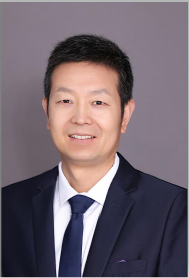
Prof. Ling-Feng Shi, Xidian University, China
He has published more than 120 academic papers in journals, including more than 100 papers in journals, more than 20 papers in domestic and foreign conferences, and more than 80 papers indexed by SCI (more than 20 IEEE journal papers, nearly 20 articles in journals above the second district of the Chinese Academy of Sciences), nearly 20 EI indexed papers, more than 20 ISP indexed papers, 19 national authorized invention patents, 1 authorized utility model, 6 national invention patents applied, 2 invention patents transferred. He has 2 textbooks and 1 academic work in English. He has won 2 second prize of provincial and ministerial science and technology progress award and 1 Outstanding teacher award in Xidian University.
Tittle: Indoor Positioning Technology Based on Smartphones
Abstract: Discuss the use of smartphones for navigation and positioning of indoor personnel, robots, drones, etc. in response to indoor navigation and positioning issues. Using the carrier of smartphones, pedestrian trajectory calculation, WIFI, Bluetooth, artificial intelligence and cloud computing technologies are used for indoor positioning or navigation, exploring solutions for indoor intelligent navigation. The main content of the report starts from the background significance of indoor positioning and the characteristics of artificial intelligence, and discusses the indoor positioning methods and development directions of multiple carriers such as personnel, robots, and drones.
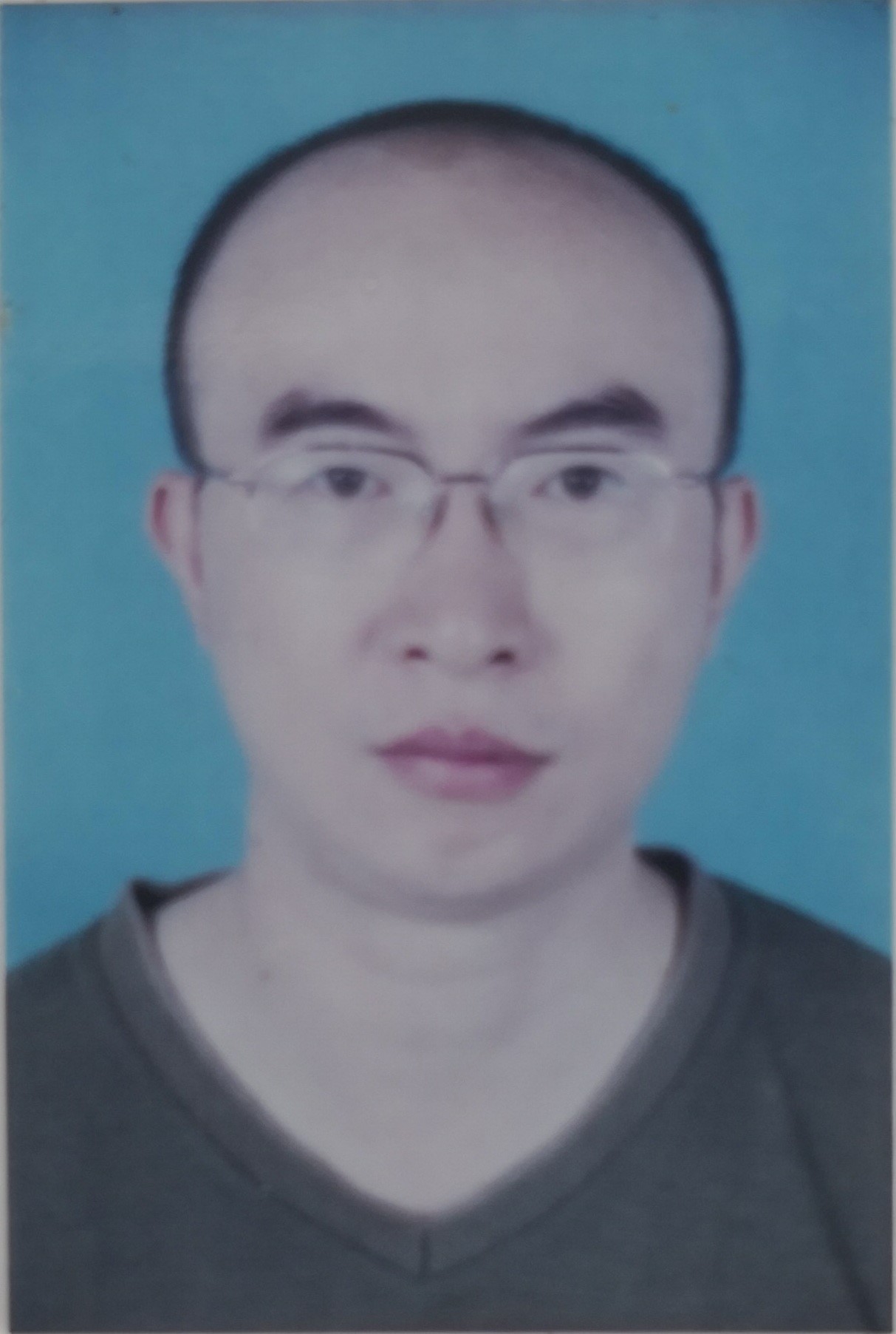
Prof. Lvqing Yang, Xiamen University, China
Professor and doctoral supervisor of Xiamen University, director of the R&D team "Data Science and Ubiquitous IOT Research Center", director of the school-enterprise "Data Elements and Smart IOT Laboratory" and the chair or the first collaborator (technical leader) participated in the general projects of the National Natural Science Foundation of China, key projects of regional development in Fujian Province, key projects of Fujian Provincial Science and Technology Plan, foreign cooperation projects of Fujian Province, key projects of Xiamen Science and Technology Plan, etc.. More than 60 horizontal topics were presided and 60 high-level academic papers were retrieved by SCI or EI. More than 10 invention patents (the first finisher) and 20 software copyrights (the first finisher) were completed. The monograph "Research and Application of UHF RFID Positioning and Anti-collision Algorithm" and " App Develop in Cloud" were published.
Professor Yang won the IBM China Excellent Teacher Award in 2010; CCB Teaching Award (research category) of Xiamen University in 2014; first prize of Xiamen University Teaching Reform Achievement (the first finisher) in 2017; International Bank Teaching Award (teaching category) of Xiamen University, first prize of Fujian Province Teaching Reform Achievement (the third finisher) and special award of Xiamen University Teaching Reform Achievement (the third finisher) in 2018; third prize of Xiamen Science and Technology Progress Award (the first finisher) in 2020; second prize of Xiamen Science and Technology Progress Award (the first finisher) and third prize of Fujian Science and Technology Progress Award (the first finisher) in 2021.

Prof. Zhi Li, Guangxi Normal University
Prof. Zhi Li is a distinguished member of China Computer Federation (CCF), standing committee member of its Technical Council on Software Engineering (TCSE), and a member of its Technical Council on Systems Software and Formal Methods. He graduated with a BSc degree from Fudan University in 1991, an MSc degree from the University of York in 2004, and a PhD degree from The Open University in 2008. Prof. Li had spent over 10 years doing professional and technical work before he entered academia in 2001, with subsequent 9 years in the UK. His research interests are modeling, verifying, testing and validating Cyber-Physical Systems (CPSs) or Internet of Things (IoT) systems based on Problem Frames, and Human-Computer Interaction. His research has been sponsored by 2 grants from the National Natural Science Foundation of China, and 4 grants from Ministry of Education of China, Guangxi Natural Science Foundation, and Guangxi Scientific Research & Technological Development. He has published over 50 research papers (including 3 CCF-A papers and 3 best papers). He has given over 10 invited talks at academic conferences.
![]() Keynote Speakers of ISCEIC 2023
Keynote Speakers of ISCEIC 2023
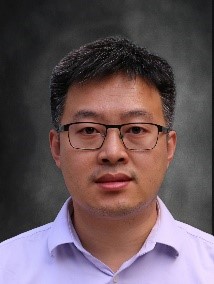
Prof. Haijun Zhang
University of Science and Technology Beijing, China(Fellow of the IEEE)
Haijun Zhang (F'23) is currently a Full Professor and Associate Dean in School of Computer and Communications Engineering at University of Science and Technology Beijing, China. He was a Postdoctoral Research Fellow in Department of Electrical and Computer Engineering, the University of British Columbia (UBC), Canada. He serves/served as Track Co-Chair of VTC Fall 2022 and WCNC 2020/2021, Symposium Chair of Globecom'19, TPC Co-Chair of INFOCOM 2018 Workshop on Integrating Edge Computing, Caching, and Offloading in Next Generation Networks, and General Co-Chair of GameNets'16. He serves/served as an Editor of IEEE Transactions on Communications, and IEEE Transactions on Network Science and Engineering. He received the IEEE CSIM Technical Committee Best Journal Paper Award in 2018, IEEE ComSoc Young Author Best Paper Award in 2017, IEEE ComSoc Asia-Pacific Best Young Researcher Award in 2019, IEEE ComSoc Distinguished Lecturer. He is a Fellow of IEEE.
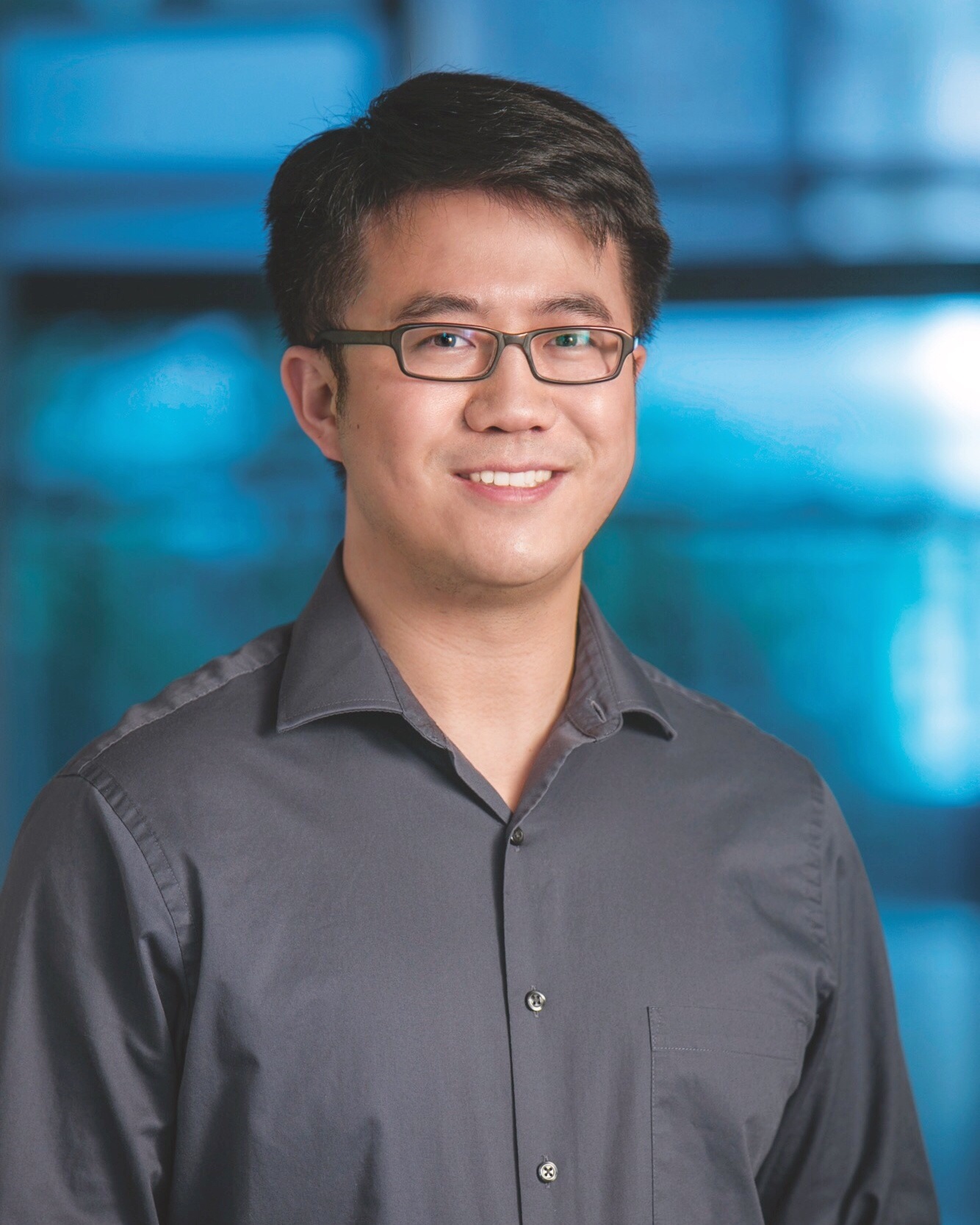
Prof. Jiang chenfanfu
University of California at Los Angeles, USA
Associate Professor of SIG Center for Computer Graphics Department of Mathematics, University of California, Los Angeles. His Research InterestsPhysics-based modeling and simulation for computer graphics, computer vision, scene understanding,robotics, and cognitive science.
Prof. Yulong Zou
Nanjing University of Posts and Telecommunications, China
Prof. Xiangjie Kong
Zhejiang University of Technology, China
Professor Yongjun Xu
Chongqing University of Posts and Telecommunications,China
![]() Keynote Speakers of ISCEIC 2022
Keynote Speakers of ISCEIC 2022

Distinguished Professor Philippe Fournier-Viger
Title: Advances and challenges for the automatic discovery of interesting patterns in data
Abstract: Intelligent systems can play an important role in various domains such as for factory automation, education, and the management of telecommunication and computer networks. To build intelligent systems, high-quality data is generally required. Moreover, these systems can also yield large amounts of data such usage logs, alarm logs, images, videos, and data collected from sensors. Due to the large volumes of data, managing the data generated by intelligent systems to gain insights and improve these systems is thus a key challenge. It is also desirable to be able to extract information or models from data that are easily understandable by humans. Based on these objectives, this talk will discuss the use of data mining algorithms for discovering interesting and useful patterns in data generated from intelligent systems.
The talk will first briefly review early study on designing algorithms for identifying frequent patterns and how can be used for instance to identify frequent alarms or faults in telecommunication networks. Then, an overview of recent challenges and advances will be presented to identify other types of interesting patterns in more complex data. Topics that will be discussed include high utility patterns, locally interesting patterns, and periodic patterns. Lastly, the SPMF open-source software will be mentioned and opportunities related to the combination of pattern mining algorithms with traditional artificial intelligence techniques for intelligent systems will be discussed.
Experience: Philippe Fournier-Viger (Ph.D) is a Canadian researcher, distinguished professor at Shenzhen University (China). Five years after completing his Ph.D., he came to China and became full professor at the Harbin Institute of Technology (Shenzhen), after obtaining a title of national talent from the National Science Foundation of China. He has published more than 350 research papers related to data mining, intelligent systems and applications, which have received more than 10,000 citations (H-Index 51). He is editor-in-chief of Data Science and Pattern Recognition and former associate editor-in-chief of the Applied Intelligence journal (SCI, Q1). He is the founder of the popular SPMF data mining library, offering more than 230 algorithms, cited in more than 1,000 research papers. He is a co-founder of the UDML, PMDB and MLiSE series of workshops held at the ICDM, PKDD and KDD conferences.
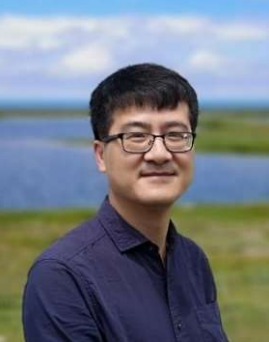
Prof. Qinmin Yang
Zhejiang University, China
Title: Theoretical research and practice in intelligent control design for wind energy
Abstract: Wind energy has been considered to be a promising alternative to current fossil-based energies. Large-scale wind turbines have been widely deployed to substantiate the renewable energy strategy of various countries. In this talk, challenges faced by control community for high reliable and efficient exploitation of wind energy are discussed. Advanced controllers are designed to (partially) overcome problems, such as uncertainty, intermittence, and intense dynamics. Theoretical results and attempts for practice are both present.
Experience: Qinmin Yang received the Bachelor's degree in Electrical Engineering from Civil Aviation University of China, Tianjin, China in 2001, the Master of Science Degree in Control Science and Engineering from Institute of Automation, Chinese Academy of Sciences, Beijing, China in 2004, and the Ph.D. degree in Electrical Engineering from the University of Missouri-Rolla, MO USA, in 2007. From 2007 to 2008, he was a Post-doctoral Research Associate at University of Missouri-Rolla. From 2008 to 2009, he was a system engineer with Caterpillar Inc. From 2009 to 2010, he was a Post-doctoral Research Associate at University of Connecticut. Since 2010, he has been with the State Key Laboratory of Industrial Control Technology, the College of Control Science and Engineering, Zhejiang University, China, where he is currently a professor. He has also held visiting positions in University of Toronto and Lehigh University.
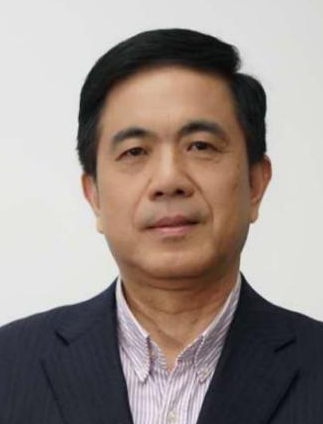
Prof.Qixin Cao,
Shanghai Jiao Tong University, China
Abstract: Medical robots as innovative and intelligent medical devices can both meet the demand for quality medical services and cope with the shortage of medical resources brought about by an aging society. It has therefore attracted the attention of governments, capital and research sectors. However, the high technological threshold, long R&D cycle and the need for continuous capital investment have become bottlenecks in the development and application of medical robots. For this reason, our team has proposed the concept of ubiquitous medical robotics, i.e., based on ubiquitous robotics, we have introduced robotic functional component technology and IoT technology to develop intelligent medical equipment on traditional surgical instruments and medical equipment. Our lab has developed corresponding intelligent medical robots based on robot-assisted surgical system and vital sign monitoring for smart elderly rehabilitation. Thus, the development cost and period of medical robots are greatly reduced. It plays a role in throwing a brick for the application and popularization of medical robots.
Experience: Qixin Cao, a professor of Shanghai Jiao Tong University, doctoral supervisor, member of National Robot Standardization Technical Committee (SAC/TC591), standing committee member of Intelligent Robot Professional Committee of Chinese Association for Artificial Intelligence, advisory committee member of Robot Competition Working Committee of Chinese Association of Automation, standing committee member of Artificial Intelligence Branch of Chinese Society for Agricultural Machinery, member of the Standing Committee of The Chinese Research Hospital Society for Medical And Industrial Transformation and Health Industry Integration branch, visiting professor of Miyazaki University and visiting professor of The University of Electro-Communications. His research interests include machine vision, ubiquitous robotics, mobile robotics, medical robotics and agricultural robotics. He has published more than 120 EI&SCI papers and obtained more than 90 national invention patents. He has won one Second prize of National Science and Technology Progress Award, one First prize of Science and Technology Award of Chinese Society for Artificial Intelligence, five Provincial and Ministerial Science and Technology awards, and two Second prizes of National Teaching Achievements; Guided students to win the National University Students "Challenge Cup" Special prize; three First prizes for Provincial and Ministerial Teaching Achievements. In 2017 and 2019, I guided my students to win the gold medal and bronze award in the graduation Design Competition of "Star Cup" of China Machinery Industry Excellent Engineers Education Alliance.
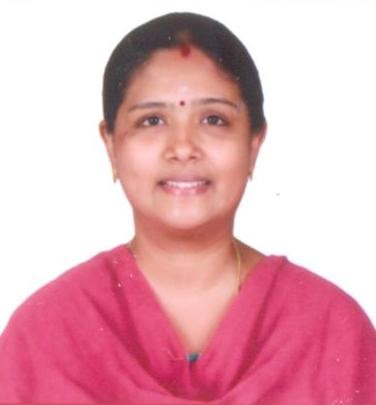
Thiagarajar College of Engineering, India
Title: IP TRACEBACK: Denial of Service Deterrent
Abstract: Securing the Internet and its services is recognized as one of the most challenging research problems. Amongst the threats imposed on the Internet, Distributed Denial of Service (DDoS) attack has occurred recurrently with a severe impact on the economy of the organization. Despite the fact that the security experts propose numerous stupendous solutions to mitigate DDoS attack, it has continued to prevail over a decade. The stateless nature of Internet and the destination oriented routing have encouraged the attackers to forge the source IP addresses of the attack packets. This complicates the forensic investigations and countermeasures against DDoS attack. Identifying the origin of the attack is an important and essential step towards deterrence and countermeasures against these attacks. IP traceback is the concept of identifying the source of the packet, even if the IP address is spoofed. Several efficient IP traceback schemes were proposed with remarkable results in the past. However, they either require huge storage at the routers or require numerous packets to traceback the attack path. Further, most of the marking based traceback schemes are not backward compatible. This thesis focuses on exploring these issues and proposes a feasible solution to identify the origin of Direct Distributed Denial of Service (DDoS) attack. Securing the Internet and its services is recognized as one of the most challenging research problems. Amongst the threats imposed on the Internet, Distributed Denial of Service (DDoS) attack has occurred recurrently with a severe impact on the economy of the organization. Despite the fact that the security experts propose numerous stupendous solutions to mitigate DDoS attack, it has continued to prevail over a decade. The stateless nature of Internet and the destination oriented routing have encouraged the attackers to forge the source IP addresses of the attack packets. This complicates the forensic investigations and countermeasures against DDoS attack. Identifyi ng the origin of the attack is an important and essential step towards deterrence and countermeasures against these attacks. IP traceback is the concept of identifying the source of the packet, even if the IP address is spoofed. Several efficient IP traceback schemes were proposed with remarkable results in the past. However, they either require huge storage at the routers or require numerous packets to traceback the attack path. Further, most of the marking based traceback schemes are not backward compatible. This speech focuses on exploring these issues and discussing feasible solution to identify the origin of Direct Distributed Denial of Service (DDoS) attack.
Research Area: Network Security, IoT, Blockchain
Invited Speaker:
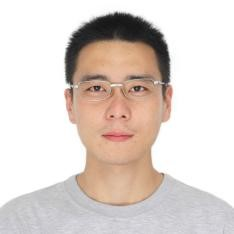
Assoc. Prof. Jiawei Xu, Wenzhou University, China
Title: Application of Human Factors Engineering in Intelligent Transportation
Abstract:
Artificial intelligence is an interdisciplinary subject between social and natural sciences, and its application has penetrated all walks of life, profoundly changing the life of human society. In addition, human factors engineering takes human as the core research object and uses various engineering disciplines to integrate and study the interaction and reasonable combination of human, machine, and environment.
In the traffic scenario, driver behavior is the core object of research, combined with artificial intelligence technology to further improve the safety and comfort of driving, and we have been doing research and teaching work in this field for a relatively long time, and actively looking for opportunities for industry-academia-research cooperation with enterprises and providing consulting services.
Experience: Xu Jiawei (Email: jxulincoln@gmail.com), has been an associate professor of the School of Computer and Artificial Intelligence, Wenzhou University since 2020, and is affiliated to the Institute of Big Data and Information Technology of Wenzhou University (Dean: Professor Zhang Xiaoqin). From 2008 to 2010, and from 2011 to 2015, he received a full scholarship to study at Hallym University in South Korea and Lincoln University in the United Kingdom, under the tutelage of Professor Seop Hyeong Park (Master Supervisor, Signal Processing Laboratory, Department of Electronic Engineering, Hallym University, South Korea) and Professor Guo Kun (main doctoral supervisor, Eye Movement and Behavior Laboratory, Department of Psychology, University of Lincoln, UK), obtained a master's degree and a doctorate degree respectively, and then worked as a researcher at Newcastle University, UK, and published several IEEE Trans journals in the direction of traffic human factors engineering. (IEEE-TITS, IEEE-TII, etc.), applied for 5 national patents, 2 soft-authored, published 3 works, and participated in many scientific research projects such as EU FP7 and BK21.
![]() Keynote Speakers of ISCEIC 2021
Keynote Speakers of ISCEIC 2021
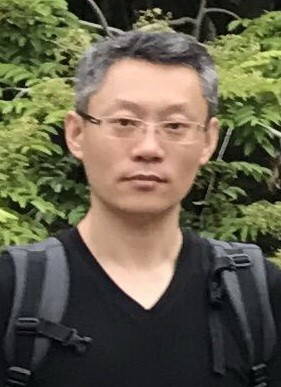
Prof. Jiping Li, South China Agricultural University, China
Abstract: Fashion is a multi-trillion dollar industry with social and economic implications worldwide. As customers' real lives become increasingly intertwined with the digital world, AI is playing a big role in transforming this industry from design to manufacturing, logistic supply chain and marketing. So, right here this talk brings a discussion, how AI is changing fashion with use cases, role and impact of AI on this industry. Several related works in Magic Manufacturing, an innovative startup, will be introduced to explore the creative use of AI in the field of apparel and footwear development, which will be a steppingstone on AI’s future in fashion.
Experience: Jiping LI is a professor of Computer Science and Engineering at South China Agricultural University, and a member of CCF, IEEE and ACM. He received his B.E. and Ph.D. degree from Harbin Institute of Technology in 1995 and 1999, respectively. After that, he worked at Tianjin University, JST (Japan Science and Technology Agency), Tokyo Institute of Technology and several Chinese companies successively. In CAD/CAE/CAM, industrial/medical/service robot, 3D printing, VR & AR, Prof. LI had rich research and development experiences. His current research interests include 3D modeling, 3D printing, AR, robot and automatic instrument.
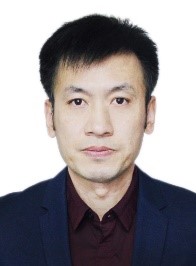
Prof. Bin Liu, Dalian University of Technology, China
Abstract: The human pursuit of health is endless. Nowadays, countries all over the world have increased their investment in the field of health care. As an emerging discipline in the future, computer-assisted medical technology has attracted much attention. This is a deeply intersecting discipline. It not only includes computer technology and medical technology, but also requires the intervention of artificial intelligence technology, mechanical engineering, mechanics and other disciplines. In the past ten years, our research group has done some exploratory research on computer-assisted personalized orthopedic surgery (especially personalized orthopedic prosthesis modeling). In addition, we have also conducted some more challenging research in intelligent image processing and analysis. In future research, it is hoped that more disciplines can work together to truly solve clinical practical difficulties.








